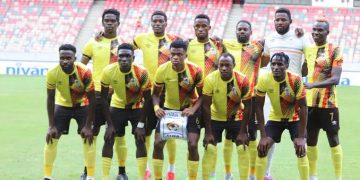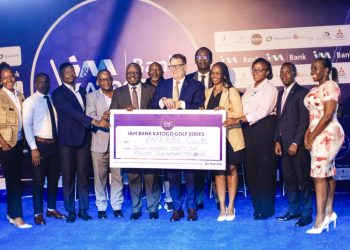Uganda is emerging as a formidable presence in the world of football. Deeply ingrained in our societal fabric, football transcends its status as a mere sport, serving as a unifying force, a beacon of hope, and a source of national pride. It bridges divides, bringing together individuals from diverse backgrounds and social strata, from the bustling streets of Kampala to the tranquil villages in the countryside.
At the forefront of Uganda’s football renaissance stands the Uganda Cranes, the nation’s beloved football team. Spearheaded by standout performers like Emmanuel Okwi, Allan Okello, and Milton Karisa, the Uganda Cranes consistently raise the nation’s flag high in regional and continental competitions. Meanwhile, the StarTimes Uganda Premier League continues to elevate its status, showcasing the talents of clubs such as BUL FC, Vipers SC, KCCA FC, Kitara FC, Express FC, and SC Villa, captivating fans with their dazzling displays on the pitch.
Fueling this surge in football prowess are initiatives like the JKAcademy, founded by Joe Kigozi, and the WEHAT Foundation, led by Musa Rugumayo. These initiatives have flourished nationwide, nurturing young talent and providing aspiring players with avenues to refine their skills. Additionally, traditional educational institutions like Kibuli SS have also played a pivotal role in talent development, with notable alumni like Allan Okello emerging from their ranks.
Despite these strides, institutions like the WEHAT Foundation encounter formidable challenges, particularly in terms of coaching and facilities. The lack of adequate resources hampers their ability to provide comprehensive training, restricting activities to basic skill drills and conditioning exercises. Addressing this issue necessitates investments in sports infrastructure, encompassing the construction and refurbishment of stadiums, playing fields, and community sports centres. Both government-led initiatives and partnerships with private-sector entities and NGOs are pivotal in this endeavour, as evidenced by ongoing renovations at Nakivubo and Mandela stadiums and investments by schools and communities in sports facilities.
Financial constraints also pose significant hurdles for the Uganda Cranes and other football entities. The absence of sufficient funding impedes the provision of essential amenities such as training facilities, equipment, and administrative support. To mitigate this challenge, the government could enforce copyright laws to enable clubs to generate revenue through the sale of branded merchandise like jerseys, t-shirts, and caps.
Moreover, inadequate infrastructure, including stadiums, training grounds, and amenities like changing and resting rooms, impedes the development of football at various levels. However, concerted efforts are underway to address these shortcomings, exemplified by projects like the Akii_Bua stadium in Hoima district, slated to host the 2027 AFCON games.
Football represents a beacon of possibility in Uganda, where economic adversities often overshadow aspirations. Fueled by the belief in the power of hard work and determination, Uganda’s journey in football is filled with promise and potential, offering a glimpse of a brighter future for the sport and the nation as a whole.





























